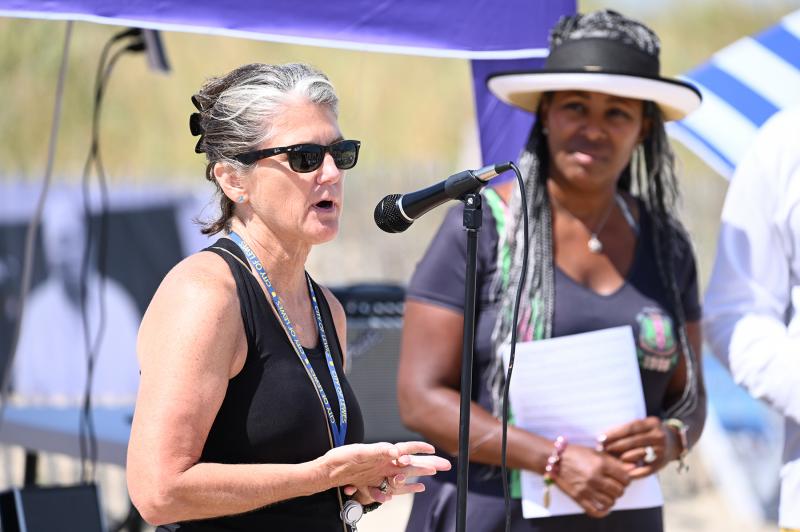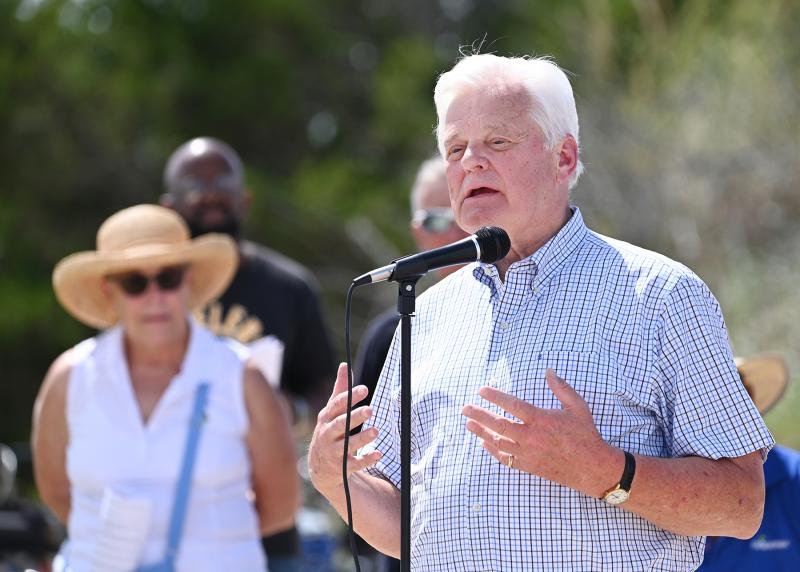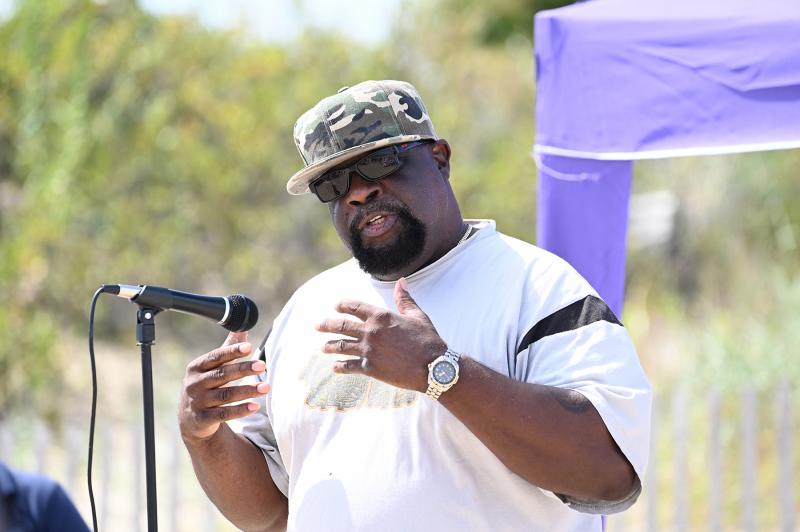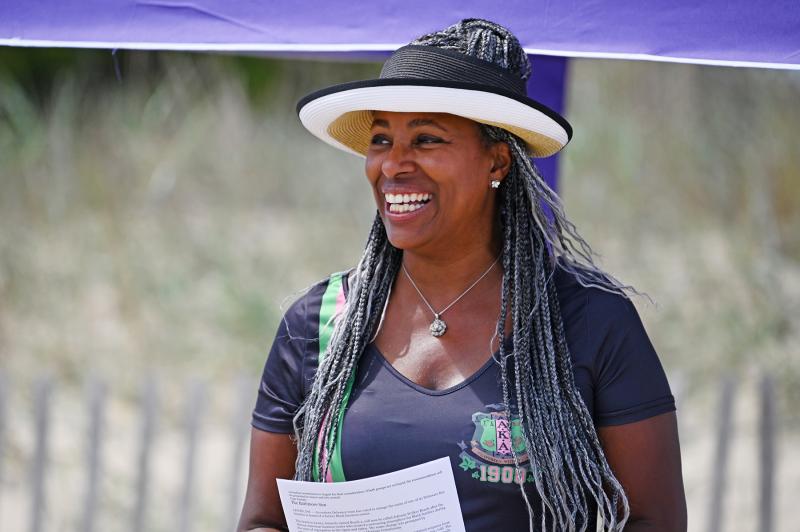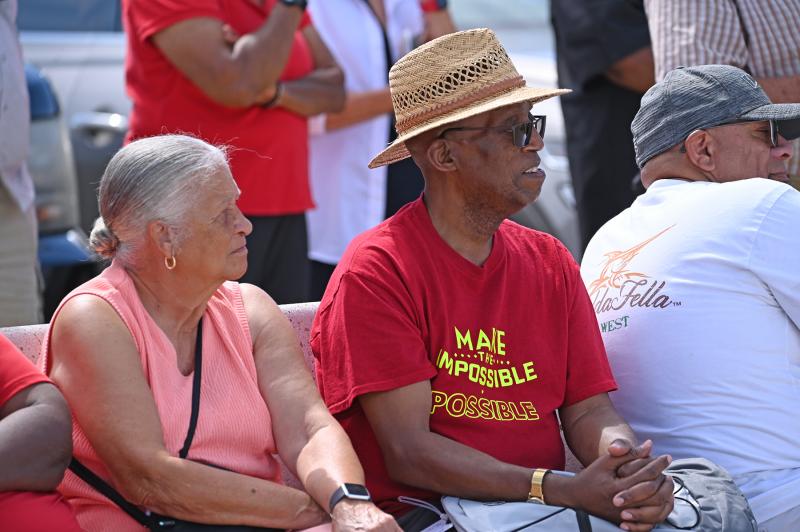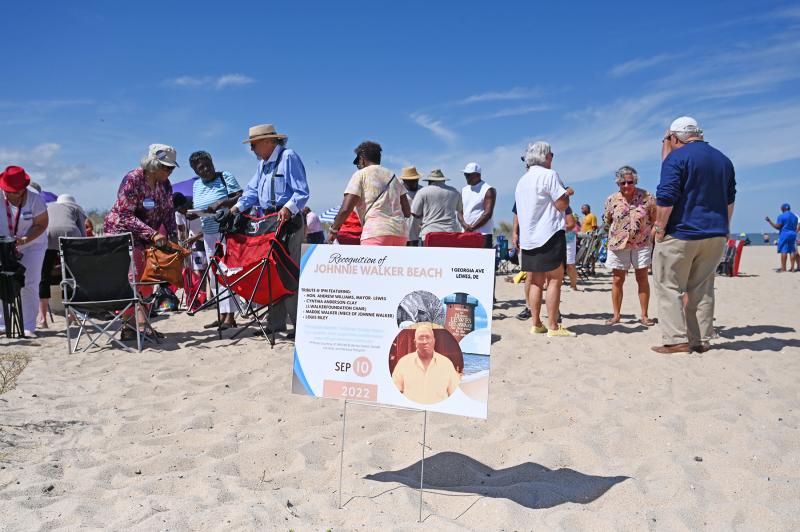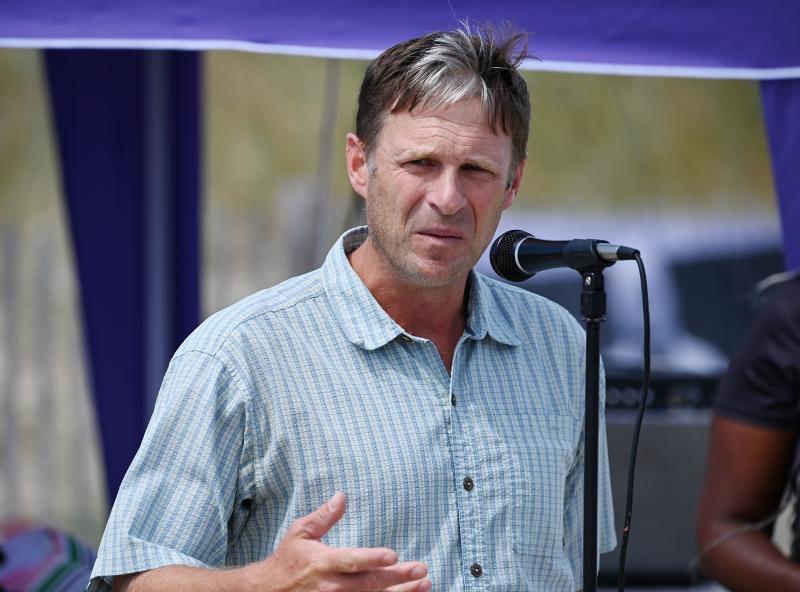When the City of Lewes sought recommendations for a name for Beach 2, the African American heritage commission didn’t hesitate: Johnnie Walker.
During the time of segregation, Walker operated a restaurant at the beach which was known far and wide as a safe place for African American families to recreate. That history is being recorded and will eventually be displayed for all to see and read on an informational kiosk at the beach.
As a way to jump-start fundraising and recognize the beach’s new name, a ceremony was held Sept. 10, drawing dozens of people from throughout the region and a few passersby. Cynthia Clay, who organized the event with her husband Sidney, said the purpose of the event was to bring awareness to the beach and raise money to support the city’s efforts to preserve Johnnie Walker’s history and memory at the beach. A relatively new resident of Lewes, Clay said she heard about Johnnie Walker Beach and its history but was disappointed to learn nothing existed on site to tell that history.
“This was a safe place for children to come and play,” she said. “This was a safe place for people when they were traveling through the state to be able to come pick up a meal.”
Even before Walker built his restaurant, said longtime Lewes resident Louis Riley, Johnnie Walker Beach was a safe place for African Americans. He recalled jumping into the Lewes-Rehoboth Canal on the incoming tide and doggy-paddling with the fast-moving current down toward the beach. He’d ask people for the time throughout the day to ensure he could catch the outgoing tide to go home.
Riley joined the Navy at age 17. Upon returning to Lewes, he learned Walker had built a restaurant on the beach. He said he played music at this establishment with a group called the Uniques, and Walker was always welcoming.
Riley’s cousin Cecil Riley also shared stories of his experiences at Johnnie Walker Beach. In June 1969, he said, he and Larry Savage worked as lifeguards at the beach.
“We thought we worked for the City of Lewes, but we really worked for Johnnie Walker,” he said, getting a laugh from the crowd. “Every day he would come out with a trash bag and tell us to walk around the parking lot and pick up the trash.”
After they were done, he said, Walker would invite them inside where he’d give them a hamburger and soda for their efforts.
The beach was renamed Johnnie Walker Beach in October 2021. At the same time, former Beach 1 was given the name Savannah Beach. Kay Carnahan, the parks and recreation beach commissioner, brought the idea of renaming the beaches to the city’s attention. She did not expect the incredible reaction that ensued.
“It’s the emotional connection everyone has with this beach that I heard,” she said.
She said she’s going to continue to work hard to bring the kiosk to the beach.
“I’m grateful to live in a historic city that recognizes that not all history is comfortable,” she said. “We need to think about the past and come to conclusions and grow. My goal is that this beach is a joyful place for all people and a place where we can think about the past, and have that help us define the future.”
Mayor Andrew Williams, who was born and raised in Lewes, said the beach has been known by several names throughout the years, from the “colored beach” to the “Black beach,” and the generic Beach 2 name never felt right either.
“It still felt like something that was lesser in importance,” he said. He applauded the efforts to rename the beach.
Janet Reeves, the city’s parks and marina administrator, said she makes it a point to ensure Lewes’ parks and beaches are open to all.
“In my position, I have a great focus on accessibility, inclusivity and equity for everyone who comes to the city, lives in the city and uses all of our parks,” she said. “This was a missing piece of that history and, obviously, a very important piece.”
To donate to the fundraising efforts for Johnnie Walker Beach, call city hall at 302-645-7777.

